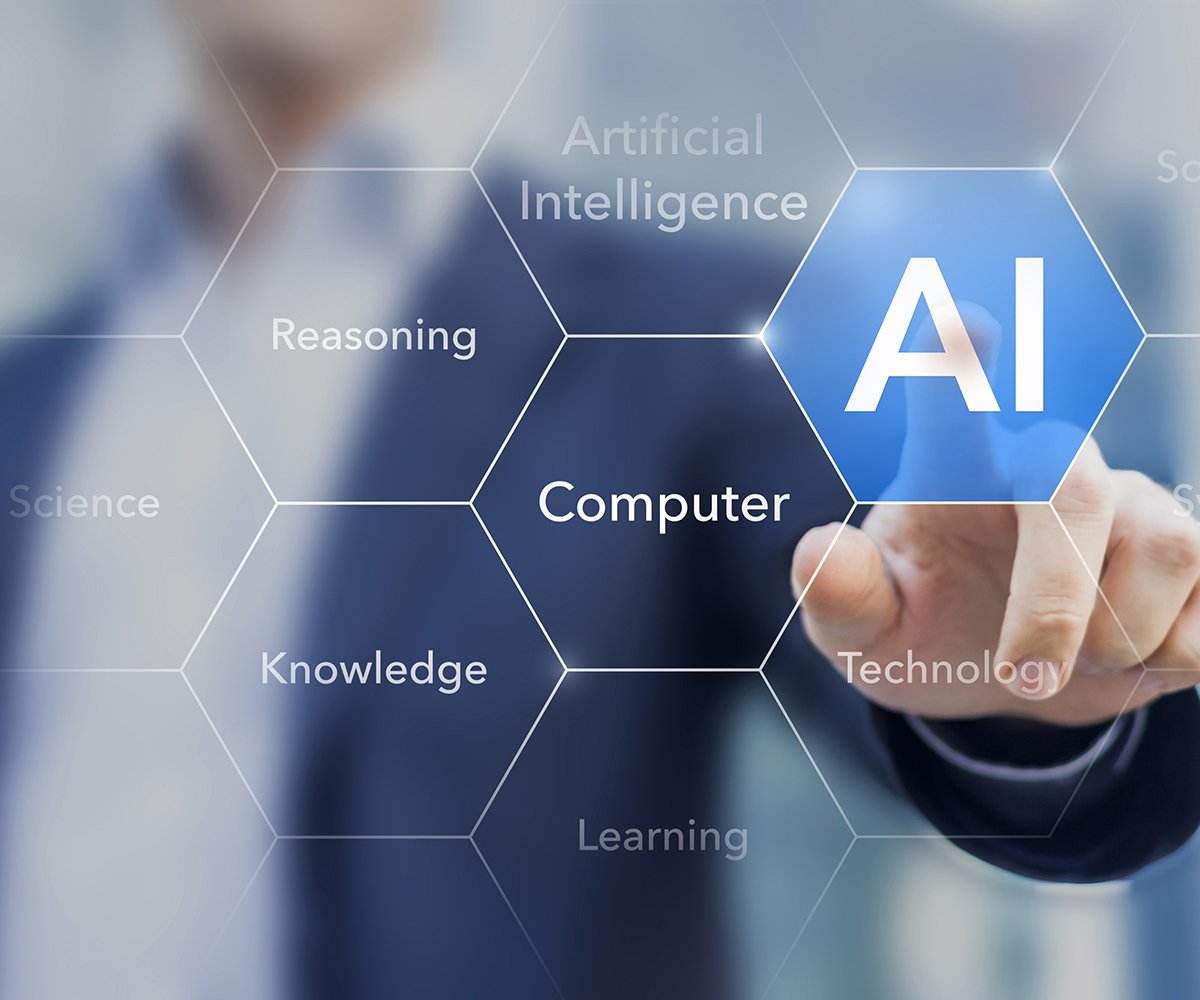
The way businesses operate, innovate, and thrive in the current competitive landscape is being completely transformed by intelligent apps. Being ahead of the curve is now not just a goal, but a need in the era of technology, which is developing at an alarming pace. For companies of all sizes and in all industries, the integration of intelligent applications made possible by artificial intelligence (AI) and machine learning (ML) has become a differentiator.
What if you could make choices based on data-driven insights, automate tedious operations, and achieve operational efficiency instead of merely aiming for it? These are the things that intelligent apps claim to provide.
Give companies greater capacity and enhance the experiences you provide to clients. Why should businesses incorporate smart apps into their strategies? Intelligent applications are successful when they provide data-driven insights, automate processes, and enhance decision-making.
They provide you with a way to sift through enormous data sets and find relevant information that will help you plan strategically and make wiser decisions. In this sense, these apps could also improve your business's efficiency to the point where resources and time are saved. The demands of sustainability, talent scarcity, and the rapid pace of digital change have put a lot of firms under more strain.
Artificial intelligence (AI) intelligent applications may boost output, enhance engineering quality, build a more robust infrastructure, and guarantee that sustainability standards are fulfilled. In this article, we will talk about reasonswhy your business should consider using intelligent applicationsin detail.
1. Intelligent Applications Help With Customization
Customization is an area in which intelligent apps excel, suggesting that they can tailor experiences for users. They customize marketing campaigns, improve customer service interactions, recommend personalized content and goods, and, when needed, modify user interfaces by using data analysis.
Engaging in such interactions with consumers fosters a human touch that increases their pleasure, fosters customer loyalty, and keeps them satisfied.
2. Increased Employee Satisfaction And Work Performance
For your company, adding intelligent automation to your IT stack may transform everything in several ways. Most importantly, you may do very monotonous and repetitive jobs significantly more quickly and effectively by delegating them to an IA solution rather than performing them by hand.
Not to add IA solutions raise the standard and consistency of the job by eliminating human error from these operations.
Entrusting IA with low-level tasks frees up your team to focus on areas where their creativity and personal touch may have the most effect. As an alternative, they may commit their time and energy to developing rapport with clients and leading important organizational projects.
Furthermore, allowing your staff to focus on more interesting and meaningful tasks may improve worker satisfaction and reduce the risk of burnout.
3. Enhance Customer Experiences
Automation technologies were mostly utilized in the past to automate backend functions including financial reporting, administrative work, and invoice processing. However, more companies are now able to use automation to improve their frontend operations thanks to the development of IA solutions driven by natural language processing technology.
Conversational AI Assistants are one significant advancement in frontend IA. These are sophisticated chatbots that can respond to consumers' inquiries with prompt, customized responses.
Businesses may minimize call and response waiting times and decrease the need for human input by using their enhanced accuracy, flexibility, and efficiency.
IA is also a potent tool for enabling self-service alternatives for consumers and customizing user journeys. This includes streamlining the checkout procedure or helping with order monitoring to provide a more seamless experience for consumers.
By doing this, companies may increase customer pleasure while also producing highly personalized experiences that increase conversion rates.
4. Intelligent Applications Help In Decision-Making
Intelligent apps use AI and ML to handle and analyze massive data volumes with speed and accuracy. As a result, businesses can take advantage of new business possibilities, manage risk, and plan strategically by using data-driven choices.
When intelligent applications uncover important patterns, trends, and insights, they provide firms an advantage in a business environment that is changing quickly.
5. Predictive Analytics
With smart applications, forecasting the future is no longer just a pipe dream. This program analyzes historical data to identify trends, anticipate requirements, and identify problems.
Organizations may save time and dollars by detecting difficulties ahead of time and improving their operations via predictive maintenance or demand prediction.
6. Understanding Behavior
Companies that deal directly with consumers are often trying to figure out how to comprehend the unique behaviors of their clients.
They now have it simpler thanks to AI. Present-day AI systems can monitor, evaluate, and comprehend human behavior thanks to machine learning. Some may also determine if a reaction from a client is "normal" or "reasonable," which aids companies in recognizing unusual consumer circumstances.
These AI algorithms may also be used by businesses to identify employee behavior. Furthermore, AI may improve a company's security infrastructure. Certain technologies may identify vulnerabilities, mitigate the danger of cyberattacks, and alert executives of malevolent efforts to access firm information.
7. Provide Product Recommendations
AI may be used by businesses to provide product recommendations that will pique consumers' interests and keep them coming back. You may show your clients items that are similar to the ones they have previously seen by keeping track of their online activity. This is a particularly smart strategy for businesses in the e-commerce industry.
Streaming services are another source of tailored suggestions. Streaming services may incentivize you to use their app longer by displaying titles that are similar to the ones you click on most often. This allows them to see what kinds of movies and programs you are most likely to watch.
8. Operational Optimization
A successful company is built on the foundation of efficient operations. Intelligent apps are essential for optimizing several operational aspects, including inventory control, manufacturing operations, and supply chain management.
These solutions contribute to waste reduction and increase overall efficiency by streamlining intricate procedures and maximizing resource use. Improved operational agility and responsiveness may lead to increased productivity and profitability for enterprises.
9. Risk Mitigation
Safeguarding organizational interests in an increasingly turbulent business environment requires effective risk management. Applications with intelligence can recognize and reduce a variety of hazards, from market volatility to cyberattacks.
Businesses may reduce possible dangers and safeguard their assets by implementing preemptive measures and conducting real-time risk assessments. Organizations may enhance their long-term sustainability and strengthen their resilience by being alert and responding to new hazards.
10. Reinforce Cybersecurity
Including IA technologies may significantly improve your cybersecurity procedures, especially considering the large amount of network traffic that security analysts are accountable for keeping an eye on. IA can help your teams, in particular, to quickly identify high-priority security warnings by combining data from many security solutions.
IA solutions may also assist in safeguarding confidential information by limiting access to your networks, databases, and systems. Businesses may use automated bots to integrate security features like anomaly detection and two-factor authentication. This adds an extra degree of security for both your workers and clients while also preserving the accuracy of the data in your system.
Getting Started With Intelligent Applications - A Strategic Approach
Although intelligent apps have a lot of promise, their adoption has to be carefully thought out. To help you get started, consider these crucial steps;
Establishing Business Goals
Determine your company's aims and objectives first. It is necessary to identify the precise regions that intelligent applications would affect the most. Would you like innovative product development, streamlined operations, and improved client experiences? Your implementation plan will be shaped by your clearly defined goals.
Crafting A Data Strategy
Intelligent applications need data. Establish a clear data strategy that covers the gathering, storing, and quality assurance of data. The success of your intelligent applications therefore depends on having good access to relevant, clean data.
Talent And Partnerships - Building The Right Team
Think about whether you should hire AI service providers or build an internal staff of data scientists. While there are advantages to both strategies, your decision should be based on the organization's long-term goals and available resources. As a result, be sure you appropriately invest in talent, since it is an essential component of effective implementation.
How Do Intelligent Applications Contribute To Innovation?
The foundation of corporate development and competitiveness is innovation. Businesses may use intelligent apps to get useful insights from consumer feedback and industry trends, which stimulates innovation.
These apps speed up the creation of new goods or services by accelerating the testing and improvement of prototypes, helping companies to keep up with changing customer needs. Organizations may carve out a unique market niche and propel long-term sustainable growth via ongoing innovation and product development.
Prototyping and fine-tuning new ideas are accelerated by intelligent apps, which use information from consumer input and industry trends. They also speed up experimentation and testing, which helps companies swiftly iterate and adjust to changing market conditions.
Intelligent apps free up important time and resources that can be used for strategic objectives and creative pursuits by automating repetitive chores and streamlining procedures.
Frequently Asked Questions
What Are Intelligent Applications?
Intelligent applications are software programs that leverage advanced technologies like artificial intelligence (AI) and machine learning (ML) to automate tasks, make data-driven decisions, and enhance business processes.
What Role Do Intelligent Applications Play In Decision-Making?
Intelligent applications provide access to real-time data insights and predictive analytics, enabling informed decision-making and optimization of resources and strategies.
Why Is Risk Management Crucial For Businesses?
Effective risk management, facilitated by intelligent applications, helps identify and mitigate risks such as cyber vulnerabilities and market fluctuations,
Final Thoughts
As we have talked about why your business should consider using Intelligent applications above, Intelligent applications are a strategic need for firms operating in the digital age, not merely a new wave of technology. Leveraging AI/ML technology inside your company may help you increase customer satisfaction by opening up new opportunities and improving operational efficiency.
However, for adoption to be effective, deliberate actions that take into account an entity's needs and resources are necessary. This entails using the greatest resources currently on the market to handle your specific demands while implementing the appropriate vendor contract approach.
This is what makes you stand out from the competition, propels you forward both now and in the future, and keeps you ahead of any potential changes.




